- Home
- Linda Castillo
The Pact
The Pact Read online
Begin Reading
Table of Contents
About the Author
Copyright Page
Thank you for buying this
St. Martin's Press ebook.
To receive special offers, bonus content,
and info on new releases and other great reads,
sign up for our newsletters.
Or visit us online at
us.macmillan.com/newslettersignup
For email updates on the author, click here.
The author and publisher have provided this e-book to you for your personal use only. You may not make this e-book publicly available in any way. Copyright infringement is against the law. If you believe the copy of this e-book you are reading infringes on the author’s copyright, please notify the publisher at: us.macmillanusa.com/piracy.
The blade left a trail of blood across pale flesh. Not too deep, but it hurt plenty. Twelve-year-old Aaron Kuhns didn’t flinch. He didn’t make a sound or look away. Didn’t so much as blink. To show any reaction would brand him as weak and lessen the solemnity of the moment.
“You ready?” the other boy asked.
Aaron looked at his friend, the glow of the campfire playing gold light across his face. Kevin Dennison might be small for his age and an Englischer to boot, but he was smart for an eleven-year-old. He knew where all the good fishing holes were along Painters Creek. He could track a buck through the thickest woods. He was a fast runner, and he could build a campfire and have it lit in two minutes flat.
Of course, Aaron could do all of those things, too; he was Amish, after all. He’d grown up on a farm, where the out-of-doors—hunting and fishing and the like—was a big part of his life. Still, he was duly impressed by his friend’s skills.
“I’m ready,” Aaron murmured.
Yellow light glinted off the blade of Kevin’s hunting knife as he folded it and slid it into the sheath at his belt. Aaron’s heart thrummed in his chest as his friend knelt next to him.
Grasping Aaron’s hand, Kevin gave him a long, meaningful look and pressed their bloodied wrists together, held them.
“We’re brothers now,” the English boy said.
Aaron grinned, and in tandem they recited the words they’d memorized over the last few weeks: “Bound by blood, our code of honor, and our warrior hearts, we vow to fight evil and pursue good at all costs. We are prepared to make the ultimate sacrifice to defend and protect our fellow man.”
The passage was straight out of the graphic novel they’d finished last week. The one in which the two main characters became blood brothers and devoted their lives to righting wrongs and saving those who needed saving.
“Amen,” Aaron murmured.
He knew the mixing of their blood didn’t really make them brothers. It was symbolic, but close enough. He’d longed for a brother as long as he could remember. Of course, God had had different plans and blessed him with six sisters. He liked the girls just fine; he thought the world of them, in fact. But he’d always longed for a brother—a kindred soul who liked to do all the things he liked to do. Finally, he had one. If only their parents saw it that way.
Two weeks ago, Kevin’s dad had told him they weren’t allowed to be friends anymore. Those Amish are dirty people, he’d said. They’re religious fanatics, backward, and uneducated. You can do better.
It wasn’t the first time Aaron had heard that sort of thing. He’d done a pretty good job of laughing it off so Kevin didn’t feel bad. Still, it hurt.
“We’re brothers, man,” Kevin said, his expression revealing a combination of wonder and awe. “We did it.”
“About damn time.”
Kevin laughed. “You cuss pretty good for an Amish kid.”
“That’s what my mamm says,” he muttered.
Around them the woods were fully dark now, the air as cold and sharp as an ice shard. Leaning forward, Aaron warmed his hands over the fire. “You ready for what comes next?”
Kevin nodded. “I was born ready.”
“Our parents are going to be worried.”
“They should have thought of that before they said we can’t be friends anymore.” Kevin shook his head. “My dad laid down the law again last night. He said you’re not allowed to come over anymore. And I ain’t allowed to go to your house. No more fishing. Nothing.”
Aaron hadn’t mentioned it to his friend, but his parents didn’t much care for him hanging out with an English kid, either.
This wasn’t the first time they’d discussed their parents’ Amish-versus-English point of view. For six months the boys had pushed, testing the boundaries, and gotten into trouble for breaking rules set forth by parents determined to break their bond. And so last weekend, Kevin and Aaron had met secretly at their favorite fishing hole on Painters Creek and come up with a plan.
“So we run away,” Aaron said. “Just like we talked about. It’s the only way.”
Kevin looked at him, eyes wide. “What about our mission?”
“We do it tonight.” Aaron remembered perfectly the afternoon they’d sat at a campfire much like this one and mapped out their strategy. At midnight, they were going to sneak over to old man Henderson’s place and free the magnificent ten-point buck the old man kept locked in a pen.
“I brought wire cutters,” Aaron said. “Two pair.”
“I got gloves.” Kevin patted the backpack on the ground next to him. “You know the way?”
“Been there twice now.”
Picking up a stick, Kevin prodded the fire. “I hear the old man’s mean as a snake. Got a rifle, too.”
“Yeah, but old people go to bed early. He’ll be sawing logs by midnight.”
Aaron recalled the first time he laid eyes on the buck. Last summer he and Kevin went hiking on the trail along Painters Creek, looking for a place to fish. They’d ended up at old man Henderson’s place. The man lived alone in a dumpy cabin deep in the woods. Aaron had no idea how the old man had captured the buck. It was a magnificent animal, muscular and proud, with ten points and eyes that looked right through you. It spent its days pacing the confines of its prison and making the most god-awful grunting and bleating sounds. Tonight, Aaron and Kevin were going to set it free.
The boys fell silent, lost in visions of the quest ahead, nerves simmering, anticipation building.
Aaron was thinking about the piece of date-nut cake in his knapsack when the rustle of dried leaves a few yards away drew his attention. He squinted into the darkness, aware that Kevin had cocked his head, too.
“You hear that?” Kevin whispered.
“Deer probably,” Aaron said, his voice sounding more certain than he felt. “Rutting season.”
Kevin laughed, but it was a nervous sound. For a minute, both boys listened, pretending their attention wasn’t on the sound they’d heard just outside the circle of campfire light.
Aaron looked down at his bloodied wrist and smiled despite the sting. He almost couldn’t believe they’d gone through with it; they were part of the brotherhood now. When they were gone, their parents would be sorry they hadn’t been more understanding.
The crackle of winter-dead leaves sounded again. Closer this time. The cadence almost like footsteps, coming toward them.
“My cousin says there are bear in these woods,” Kevin said, his eyes scanning the darkness.
“Bears hibernate this time of year,” Aaron corrected. “Probably a possum or raccoon.”
Rising, trying to play it cool, Kevin rounded the campfire to sit beside him. “Don’t want something sneaking up behind me, man.”
Aaron forced a laugh. “Ain’t nothing going to sn—”
The snap of a branch cut his words short. Just fifteen feet away. Something heavier than a raccoon. Aaron was still processing the thought when th
e spindly branches of a winter-dead raspberry bramble quivered.
Next to him, Kevin’s foot began to jiggle. “Billy McGriff says there are ghosts out here.”
“Billy’s as dumb as a frickin’ stump.” But Aaron had heard the stories, too. He didn’t want to admit it, but the notion of ghosts—schnell geiste—scared him a lot more than some critter foraging for food. According to Amish lore, Da Butzemann—which was Deitsch for “The Scarecrow”—roamed these woods.
“We probably ought to stop talking about it,” he said.
“Yeah, creeps me out.” Kevin studied the darkness. “Probably bullshit anyway.”
The sound of scraping came at them. Aaron wanted to believe it was a young mule deer testing his antlers against a tree, the way they did this time of year. But the metallic hiss sounded more like the scrape of steel against stone. According to legend, Da Butzemann sharpened the blade of his scythe by scraping it against a flat rock.…
Both boys stood, eyes seeking, breaths quickened and puffing out in front of them. Their eyes met. “Keep your knife handy,” Aaron whispered.
Kevin patted the folding knife strapped to his belt. “I ain’t scared of no damn ghost.” As if to prove it, he cupped his hands on either side of his mouth. “We got knives, asshole!”
The unmistakable sound of footsteps echoed just outside the circle of campfire light.
“That ain’t no deer,” Kevin whispered.
Aaron didn’t scare easily. He was comfortable in the woods, familiar with the sounds. This one wasn’t a natural sound. He didn’t want to admit it, but he was scared spitless. “Maybe we ought to go ahead and head for old man Henderson’s place,” he whispered.
“Yeah.” His friend’s teeth were chattering. Aaron wanted to think it was from the cold, but Kevin looked like he was about to bolt.
Slowly, Aaron picked up his knapsack. Next to him, Kevin knelt, hefted his backpack onto his shoulder. The boys kicked dirt onto the campfire. Smoke wafted into the air as the fire smothered. The light died, casting them into darkness.
Aaron reached into his knapsack for his flashlight. “I don’t believe that stupid legend about the scarecrow.”
Kevin spat on the embers. “Adults invented it to keep dumbass little kids out of the woods.”
Something heavy crashed through brush. Moving fast. Coming directly toward them. Aaron startled, swung his beam left, saw a shadow dart between trees.
Kevin squealed. “What was that?”
Aaron spun. “Run!”
Fumbling with the flashlight, he launched himself into a sprint. The beam of his flashlight played wildly over the trees as they entered the trailhead. He got a better grip, set the beam on the trail, and booked it. He was a fast runner. Datt always said he was agile as a goat with the stamina of a mule. He risked a glance over his shoulder. Kevin was a few feet behind him. Arms pumping. Mouth open. Face contorted into a mask of terror.
“Faster,” Aaron hissed. “Come on!”
That was when he spotted movement behind his friend. The shifting of shadows. Not just one, but two. Too dark to make out any detail, but he thought it was a person.
“What the hell, dude?” Kevin cried.
“Shut up and run!” Aaron whispered. “They’re coming!”
* * *
The holiday season is a quiet time in Painters Mill. The time of year when, even though my small police department is understaffed, my officers actually have the time to take the vacations they’ve been denied through the summer and fall, when the tourists show up en masse to enjoy the bucolic countryside of Ohio’s Amish country.
My name is Kate Burkholder and I’m the chief of police. I was born Amish and raised in this pretty little town of 5,300 souls, a third of whom are Amish. It’s three days before Thanksgiving and nearly eight P.M. My second-shift dispatcher, Jodie, is on vacation. Mona, who divides her time between patrol and dispatch—at least until I can get a new dispatcher hired—has come in to cover for her. I’m in my office, looking over a résumé. My candidate is due for her interview any moment.
“Chief?”
I glance up to see Mona appear in the doorway. “Your appointment is here,” she tells me.
“Send her in.”
Giving me a thumbs-up, she disappears. I’m scanning the highlights of the résumé, mildly impressed, hoping this doesn’t take too long, when another voice comes from the doorway.
“You look like you’ve had a long day.”
I look up to see a woman of about sixty enter. Friendly expression. Confident, but not pushy. Good eye contact. Her silver-brown hair is cut short. Wire-rimmed glasses. Tasteful skirt that reaches just below her knees. Practical shoes. Hose. According to her résumé, she spent six years dispatching for the Holmes County Sheriff’s Department. Last month she graduated from the Citizens’ Police Academy in Millersburg and realized she missed hanging out with cops.
I rise and we shake hands. “Thanks for coming in so late.”
“Life doesn’t always cooperate with our schedules. Mine’s pretty open right now.” She takes the chair across from my desk. “I understand you’re in need of an experienced dispatcher.”
“Full time,” I tell her, pleased she wants to get right down to business. “Gets busy at times. Can be slow, too, though. Shift might vary.”
“When you’ve raised two children and six grandkids, you’re plenty used to a busy schedule and varying shifts.” She cocks her head. “Overtime?”
“On occasion.”
“Well, that’s a plus. I do prefer to stay busy.” She’s direct, but personable. Not a nerve in sight. She might look like a cookie-baking, baby-coddling grandmother, but I get the impression she’ll dress you down as quickly as she’ll hand out an attaboy.
She passes me a sheet of paper. “I forgot to attach this to the résumé. I’m kind of rusty on all the new technology. Hope that’s not a problem. It’s a letter of recommendation from Sheriff Rasmussen.”
I take the letter, skim it, and try not to be too impressed. “Mike’s a good cop.”
“Good man, too.” She studies me intently. “Cares about the community. His deputies. That’s important.”
“Yes, it is.” For the first time I feel as if I’m the one being interviewed, and I add “judicious” to the growing list of things I like about her. In the back of my mind, I wonder how she might fit in with the rest of my team.
“Chief?”
I glance toward the door to see Mona rushing in. “Sorry to interrupt.” She casts an apologetic look to the woman sitting in the visitor chair and then back to me. “I just took a call from Monica Dennison. She and her husband are on their way here. Their eleven-year-old son is missing. Didn’t come back from fishing this afternoon and he’s not answering his cell.”
“How long has he been missing?” I ask.
“He was supposed to be home at five.”
Three hours isn’t terribly long, but enough time to cause concern, especially for an eleven-year-old.
“Any idea where he was fishing?” I ask.
“Painters Creek. Down by the icebox,” she tells me, referring to a large pool of water that’s a local favorite for swimming and fishing. “Mr. Dennison walked the area, but there’s no sign of him.”
“Some deep spots down that way.” This from the woman sitting across from me. When I look at her, she gives me a knowing look, her expression concerned. “My grandkids swim there in the summer.”
The area is heavily wooded, too. The greenbelt is a mile wide in places and runs north and south for most of the county. It’s several hundred acres of old-growth trees, thick brush, ravines, and feeder creeks, and I find myself hoping that either the boy shows up or we’re able to locate him quickly.
I reach for the yellow pad I keep next to my phone. “Who’s on patrol this evening?” I ask Mona.
“Skid.”
The switchboard dings with a series of incoming calls. Simultaneously, the bell on the front door jangles, telling us we
have a visitor, likely the Dennisons.
Mona glances over her shoulder toward reception, waits.
“Get Skid on the radio,” I tell her. “Tell him to head out that way. Notify County and ask them to stand by.”
“Roger that.”
The phone on my desk lights up. The display tells me it’s John Tomasetti, my significant other and an agent with the Ohio Bureau of Criminal Investigation. I ignore the call and glance at the woman sitting across from me.
“I suspect this is one of the ‘when it pours’ moments,” she says, rising.
I smile. “We’re going to have to do this another time.”
“Of course you are.” She sticks out her hand. “Wish I could help. Don’t like the idea of an eleven-year-old not being accounted for, especially with heavy weather moving in.”
I nod, my thoughts heading in the same direction. Temperatures were in the fifties today, but according to the National Weather Service, the first snow of the season is due tonight and it’s going to be a doozy.
We shake hands. “I’d appreciate it if you didn’t let some other department steal you away until we’ve had time to talk.”
She gives me a mock salute. “Roger that.”
* * *
I sense the tension radiating off the couple the moment I enter reception. Jeff Dennison paces near the door, checking his watch every couple of seconds, free hand shoved into the pocket of his trench coat. His wife, Monica, stands next to the reception desk, wringing her hands. They’re in their forties and live in a big Victorian house a few blocks off Main Street. Jeff has worked at the Painters Mill Bank as long as I can remember. Monica teaches geometry at the high school. She coaches track and took her team to the state finals last year. Both of them look as if they’re still wearing their work clothes.
“Mr. and Mrs. Dennison,” I say as I stride toward them. “I hear your son is missing.”
The couple swivels toward me. Worry is etched deeply into their features.
Monica rushes to me, her husband coming up behind her. “It’s Kevin,” she says. “He went fishing today and hasn’t come home. He was supposed to be home at five. He’s never late, especially when dinner’s on the table.” The words tumble out of her in disarray. She’s talking too fast. Breathless. Brain clogged with anxiety.

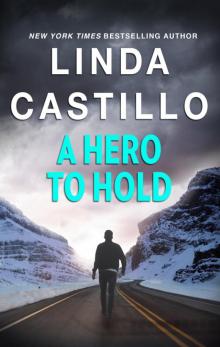 A Hero to Hold
A Hero to Hold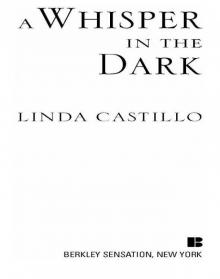 A Whisper in the Dark
A Whisper in the Dark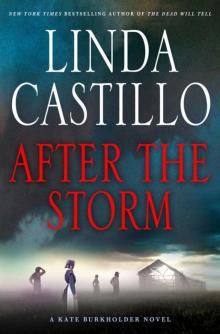 After the Storm
After the Storm A Baby Before Dawn
A Baby Before Dawn Breaking Silence
Breaking Silence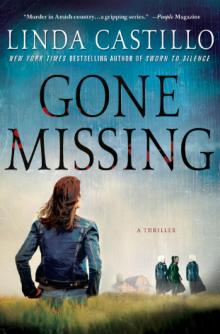 Gone Missing
Gone Missing Long Lost
Long Lost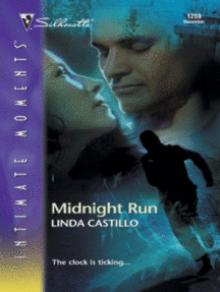 Midnight Run
Midnight Run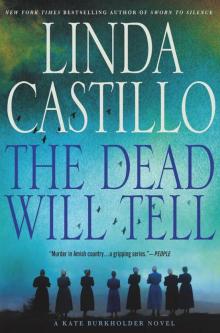 The Dead Will Tell
The Dead Will Tell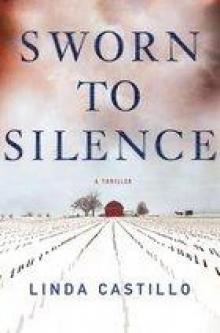 Sworn to Silence
Sworn to Silence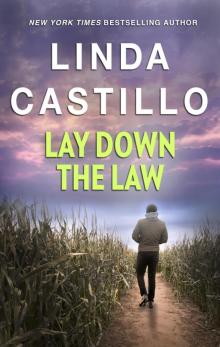 Lay Down the Law
Lay Down the Law Safe Before Dawn
Safe Before Dawn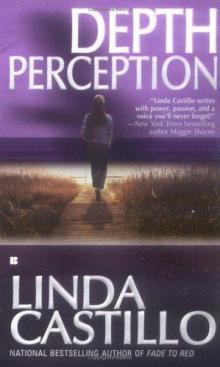 Depth Perception
Depth Perception Seeds of Deception
Seeds of Deception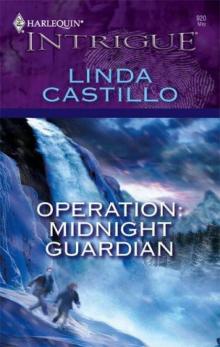 Operation: Midnight Guardian
Operation: Midnight Guardian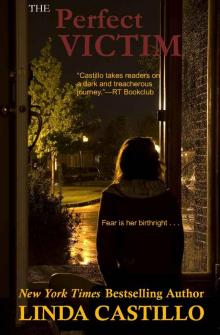 The Perfect Victim
The Perfect Victim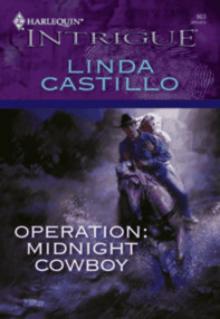 Operation: Midnight Tango
Operation: Midnight Tango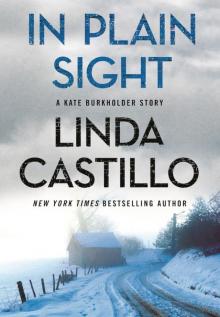 In Plain Sight (Kate Burkholder)
In Plain Sight (Kate Burkholder) Shamed
Shamed Fallen
Fallen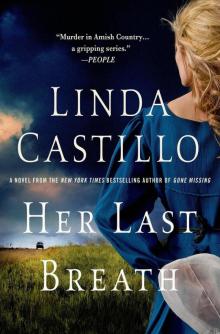 Her Last Breath
Her Last Breath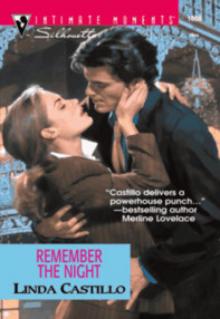 Remember the Night (Men in Blue)
Remember the Night (Men in Blue) Dead Reckoning
Dead Reckoning Cops and ... Lovers?
Cops and ... Lovers? The Pact
The Pact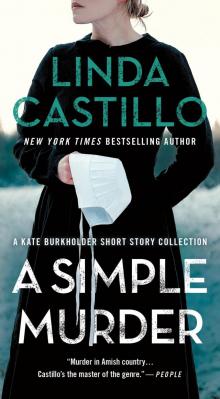 A Simple Murder
A Simple Murder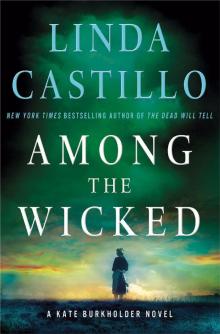 Among the Wicked
Among the Wicked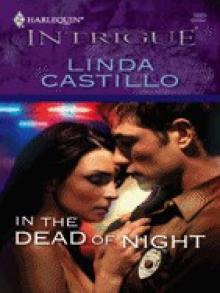 In the Dead of Night
In the Dead of Night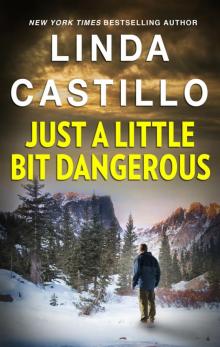 Just a Little Bit Dangerous
Just a Little Bit Dangerous The Phoenix Encounter
The Phoenix Encounter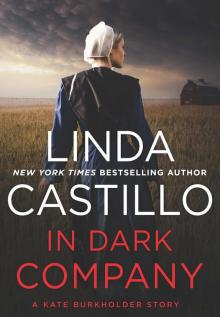 In Dark Company
In Dark Company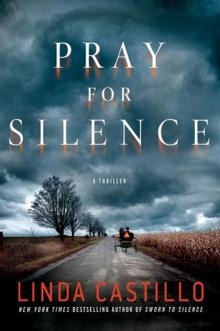 Pray for Silence
Pray for Silence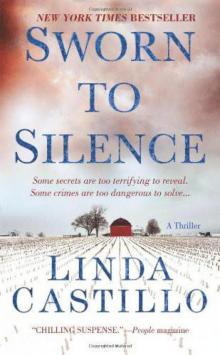 Kate Burkholder 01-Sworn to Silence
Kate Burkholder 01-Sworn to Silence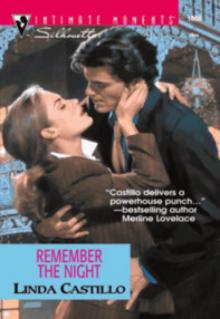 Remember the Night
Remember the Night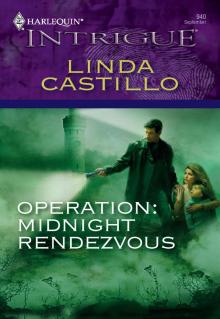 Operation: Midnight Rendezvous
Operation: Midnight Rendezvous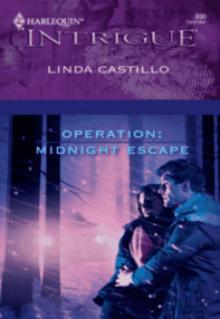 Operation: Midnight Escape
Operation: Midnight Escape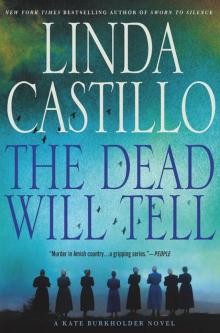 The Dead Will Tell: A Kate Burkholder Novel
The Dead Will Tell: A Kate Burkholder Novel Seeds of Deception: A Kate Burkholder Short Story
Seeds of Deception: A Kate Burkholder Short Story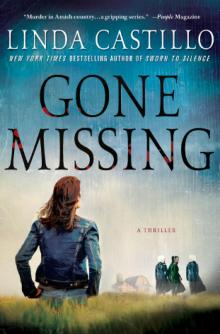 Gone Missing (Kate Burkholder 4) kb-4
Gone Missing (Kate Burkholder 4) kb-4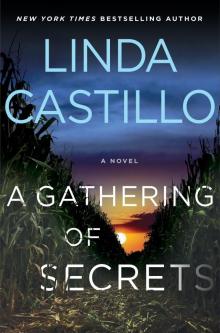 A Gathering of Secrets
A Gathering of Secrets Seeds of Deception: A Kate Burkholder Short Story (Kindle Single)
Seeds of Deception: A Kate Burkholder Short Story (Kindle Single)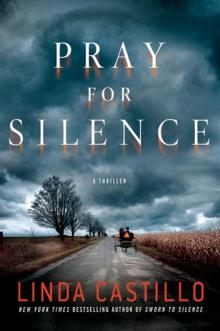 Pray for Silence kb-2
Pray for Silence kb-2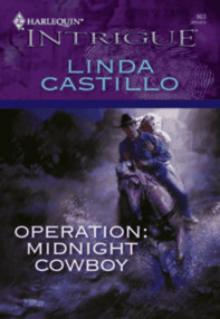 Operation: Midnight Cowboy
Operation: Midnight Cowboy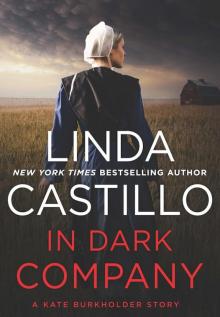 In Dark Company_A Kate Burkholder Short Mystery
In Dark Company_A Kate Burkholder Short Mystery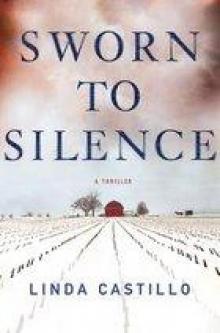 Sworn to Silence kb-1
Sworn to Silence kb-1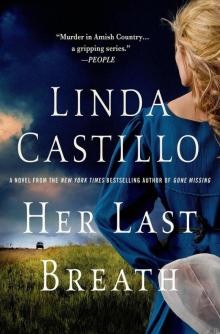 Her Last Breath: A Kate Burkholder Novel
Her Last Breath: A Kate Burkholder Novel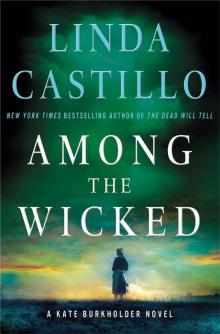 Among the Wicked: A Kate Burkholder Novel
Among the Wicked: A Kate Burkholder Novel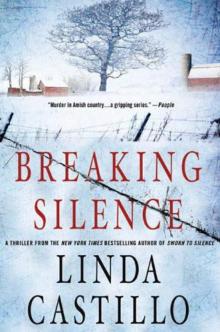 Breaking Silence kb-3
Breaking Silence kb-3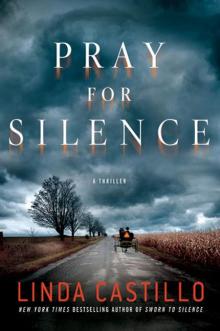 Kate Burkholder 2 - Pray for Silence
Kate Burkholder 2 - Pray for Silence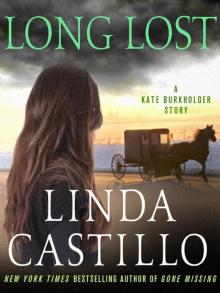 Long Lost: A Kate Burkholder Short Story
Long Lost: A Kate Burkholder Short Story